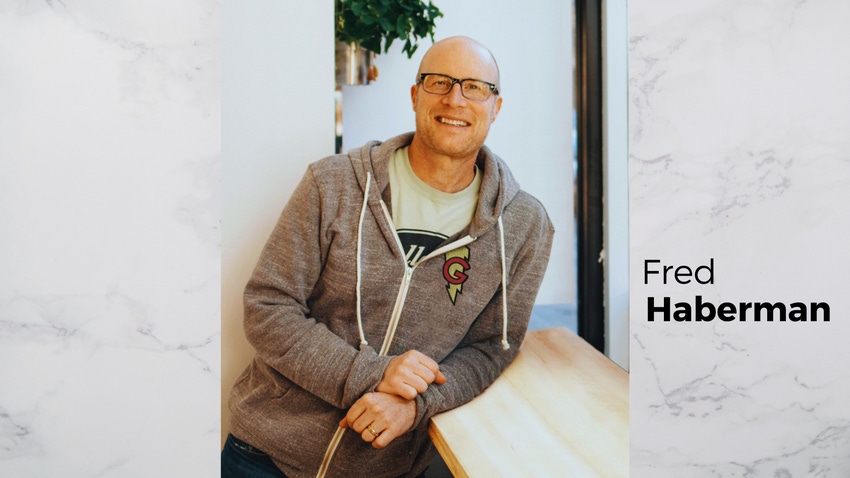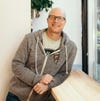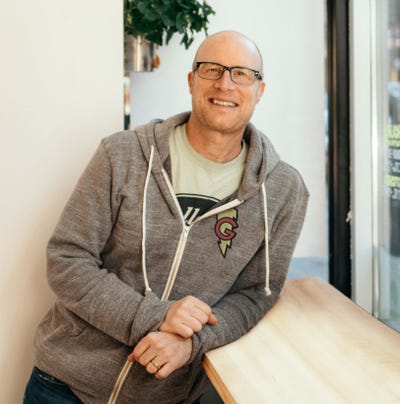Lessons from a humbled natural CPG founder
Seasoned entrepreneur Fred Haberman thought launching a natural food brand would be cake. He was wrong. But his experience taught him a lot, including the dangers of hubris.

I thought I knew everything it would take to start and grow a food business. After all, as a marketing agency guy, I had helped all kinds of natural food CPG founders grow their consumer footprints and eventually sell their companies for big multiples on revenue and EBITDA. I thought, man, if these folks can do this, I know I can.
I had more entrepreneurial experience than most of these founders. I had started and grown—and even sold—companies in other industries. I had a passion for the food industry. And I knew what consumers wanted. I truly believed I knew what it would take to start and grow a company to $50 million and exit with a check for 4X revenue from a big private equity firm or strategic.
That was five years ago. And wow, was I wrong about so many things.
Although I’d helped start a business with my wife in Kazakhstan in the early 1990s, right after the fall of the Soviet Union—and although I’d helped found a company that sent the first women across Antarctica and even co-founded one of the first aquaponics firms in the world—my experience starting my own CPG company has been, by far, the most humbling business experience of my life.
What I didn't know hurt me. And what I thought I knew about the industry (really only from a consumer-marketing perspective) was actually just a small sliver of what I'd really need to know to be successful. After the first two years of running my small CPG food brand, I realized that I was operating a tiny company within a massive, transactional macrosystem that could crush me if I didn't learn and adapt quickly.
Throughout the next year, I will be penning a column that will highlight what I’ve learned from real experiences, through which I endured painful lessons or enjoyed happy successes (yes, my little CPG food brand has had some).
My goal is to help you become a better CPG food entrepreneur, executive, leader or manager. And, as I’ve learned, my lessons are applicable to all, from the first-time entrepreneur to the seasoned CEO, and scalable to CPG food brands of all sizes.
Lesson 1: Entrepreneur and CEO hubris: both an asset and a liability
Hubris may be too strong of a word to describe the common entrepreneur or CEO belief that they can accomplish most anything they put their mind to, but it’s the best word that comes to mind.
Hubris, or deep self-confidence, is an asset that helps create belief among investors, team members, buyers and key stakeholders who will support your entrepreneurial efforts. But it can also cloud your judgement and blind you to the realities, difficulties and longshot odds you might face to create success.
Hubris definitely played a role in my venture. Now, based on my experience, here are my suggestions and warnings:
Know the facts, understand the risks
Consider these daunting statistics: 30,000 CPG products are introduced each year in the U.S., and the failure rate is 70% to 90%. More than 80% of new CPG companies fail to make it to $1 million in revenue.
With that level of risk, it’s imperative to truly understand the economic dynamics and consumer behavior in the category you want to launch products into. In my case, hubris clouded my judgement of how well I understood these factors in a category I should never have entered. As a result, I had to pull out of the category 24 months later.
Ask yourself these questions, and don’t let hubris get in the way of honest answers: Why did various other ventures fail to gain traction in this category? Why are the category leaders truly winning? Are your products truly differentiated from those currently on-shelf, or are they just another version? And for you to win in this category, can you do it while achieving profitability?
Don’t listen only to the cheerleaders
A big reason I entered the category I did is because a cheerleader—a buyer for a top national retailer—wanted us to. My hubris and can-do attitude said, absolutely, we can create products for this category and crush it.
Boy, was that a mistake in hindsight. Incredibly, the buyer wanted us to stay in the category, even after I said we needed to exit because the economics were not sustainable. This was also a big lesson that a buyer’s motivations are not always aligned with yours.
Other cheerleaders come in the form of friends and successful executives with no real experience in growing CPG companies. Take their endorsements with a grain of salt, and talk to people who have truly built CPG food companies—they can give you the best information and insights on your venture.
Know your ‘why’
Why are you pursuing your CPG food concept? Is it for the money? To flip your business in several years for millions of dollars? Or is it to build something that will truly make a positive difference in the world, something that is propelled by a mission and contribution you want to make?
If it is the latter, you will have more energy to endure the roller coaster of emotions that comes from taking money from friends and family and investors. You’ll be better able to make personal financial sacrifices. You’ll have the emotional fortitude to deal with the challenges of working in a very transactional, byzantine ecosystem of co-packers, distributors, buyers and investors.
I did know my “why” and was committed to the contribution I wanted to make in the world through my company. This made all the difference in providing me with the energy I needed to get through the tough times. Alas, consumers did not care as much about my mission as I did, but again, I chalk this up to the entrepreneurial hubris that clouded my true understanding of the economic and consumer-behavior dynamics at work.
In the end, there is no doubt that it is fun and a "high" to create new products and have consumers say they love your brand and product line. But understand the role of hubris in weighing the odds, the timeline and the self-sacrifices you’ll need to make before launching your company or new products.
I hope this and other lessons I’ll share in the future will help you. I look forward to engaging with you, taking on topics that are stressing you out and, ultimately, learning from and having fun with you.
Fred Haberman is co-founder of marketing firm Haberman and founder of Freak Flag Organics. His involvement in the natural products industry predates USDA Organic becoming a national standard, yet he still believes he is 25 years old. Email him at [email protected].
Read more about:
IdeaXchangeAbout the Author(s)
You May Also Like




